
Gaslighting Hard Edition: ‘Stunning’ 620% Higher Risk of Myocarditis After mRNA COVID "Vaccines." Korean Study
And A Possible Treatment Approach for Management of Post-COVID Vaccination Myocarditis.
A recent Korean research study showed horrific slow kill bioweapon “vaccine” outcomes in the genetically modified subjects, only to fraudulently conclude:
The result of our study may indicate the necessity for additional monitoring when administering booster vaccinations. However, it should be interpreted cautiously due to the potential healthy vaccine effect. In addition, booster vaccinations have shown substantial safety and potential benefits of improving humoral immune response preventing COVID-19 diagnosis or reducing disease severity29. Moreover, an additional dose of the vaccine could serve as a strategy to address the limitation of its waning efficacy over time30. Therefore, our results are not sufficient to discourage booster vaccination and suggest that regular and long-term monitoring may be necessary to ensure the early detection and management of any emerging risks associated with repeated vaccinations.
This is absolutely sickening to read precisely because the research study irrefutably proved that there is a wide-range of adverse events, including a 620% increase in the life-shortening (read: deadly) myocarditis outcome due to the administration of these Modified mRNA poisons.
The fact that these “vaccines” do not prevent transmission in the least, nor attenuate COVID symptoms whatsoever means that they could never be approved for human use; also, all of the animal studies showed that the Modified mRNA platform was exceedingly dangerous and ineffective, despite many of the said animal studies being cut short in order to obfuscate the grim side affects and reduced lifespans. Therefore, it is especially troubling when the research authors wrote:
Moreover, an additional dose of the vaccine could serve as a strategy to address the limitation of its waning efficacy over time.
In other words, ascribing “waning efficacy” to the overall decimated immune systems of the VAIDS sufferers is an effective strategy to getting greater booster update.
Absolutely sickening gaslighting and coverup job by yet another research team that is beholden to governmental agencies (Korea Disease Control and Prevention Agency [KDCA]), BigPharma and the Intelligence Industrial Complex.
And if for some reason one believes that the KDCA was not in on the PSYOP-19 scam, then simply take a gander at their recent tabletop exercise participation with all of the usual bioterrorist eugenicist suspects: Disease X Exercise to Prepare for Next Pandemic.
Next scamdemic indeed, the next round of Modified mRNA slow kill bioweapon boosters, and the next unprecedented surge in VAIDS adverse events like myocarditis, prion-based diseases and turbo cancers; but hey, have no fear, because the results are never ever, “sufficient to discourage booster vaccination…”
A large-scale peer-reviewed South Korean study has found significantly increased risks of serious cardiac and neurological conditions following mRNA COVID-19 vaccination, and lesser risks of several autoimmune diseases.
The nationwide population-based cohort study, published Tuesday in Nature Communications, followed nearly 4.5 million people for an average of 15 months after vaccination. First published on July 23, 2024
Researchers found a striking 620% increased risk of myocarditis and 175% increased risk of pericarditis in people who received the vaccine compared to historical controls.
The study also revealed a 62% increased risk for Guillain-Barré syndrome (GBS), a rare neurological disorder.
The researchers did not highlight the cardiac and GBS risks, but only used the data to confirm the validity of their study design, which focused on determining the risks of autoimmune diseases associated with mRNA COVID-19 vaccines.
The researchers found a 16% increased chance of systemic lupus erythematosus (SLE — the most common lupus type) and a 58% higher risk of bullous pemphigoid (BP — large, fluid-filled blisters).
The study also revealed that booster shots were associated with slightly increased risks of several autoimmune connective tissue diseases (AI-CTDs), including alopecia areata (patchy hair loss), psoriasis (scaly, inflamed skin) and rheumatoid arthritis.
“Given that the risk of SLE and BP was increased in certain demographic conditions such as age and sex, long-term monitoring is necessary after mRNA vaccination for the development of AI-CTDs,” the study authors noted.
Brian Hooker, Ph.D., chief scientific officer at Children’s Health Defense (CHD), noted how the authors minimized the most alarming data but told The Defender the study was otherwise “very robust.”
Hooker said several other studies also show relationships between autoimmune disorders — including systemic lupus — and mRNA vaccination.
The Nature Communications article follows another South Korean study published in May that found significant increases in the incidence of Alzheimer’s disease and mild cognitive impairment following COVID-19 mRNA vaccination.
One of Largest Studies of Its Kind
The South Korean study, one of the largest of its kind, examined the long-term risk of autoimmune connective tissue diseases following mRNA-based SARS-CoV-2 vaccination.
Researchers analyzed data from 9,258,803 individuals who had received at least one dose of an mRNA COVID-19 vaccine. The researchers then randomly split this total into a vaccination cohort of 4,445,333 people and a historical control cohort of 4,444,932 individuals.
Because of South Korea’s high vaccination rate (96.6% of adults completed the primary COVID-19 series by October 2022), the researchers studied the health history of the control cohort for the two-year period prior to their first vaccine dose, up to Dec. 31, 2020 — just before the vaccine rollout. The vaccination group was observed through Dec. 31, 2022.
Karl Jablonowski, Ph.D., senior research scientist at CHD, criticized the observation period for the historical control group, pointing out that this timeframe bridges the first year of the SARS-CoV-2 pandemic.
“This makes it impossible (or really darn difficult) to disentangle results based on vaccination or infection,” he told The Defender. “Ideally this study would include a contemporary unvaccinated cohort for scientific examination.”
However, the researchers chose not to study unvaccinated people due to concerns over “inappropriate cohort selection and potential selection bias.”
The mean follow-up times were 471.24 ± 66.16 days for the vaccination cohort and 471.28 ± 66.15 days for the historical control cohort.
The researchers used comprehensive demographic data and healthcare records from the National Health Insurance Service (NHIS) and Korea Disease Control and Prevention Agency (KDCA) databases, which cover over 99% of the South Korean population.
They attributed disease conditions when confirmed by the corresponding International Classification of Diseases (ICD-10) diagnostic codes through at least three inpatient or outpatient visits during the observation period.
To ensure fair comparisons between the vaccinated group and the historical control group, researchers used statistical methods to balance out differences in:
Age and sex
Income levels and place of residence
Health habits like smoking and drinking
Existing health conditions, from high blood pressure to HIV
They also accounted for changes over time, such as when people got booster shots.
High Risk of Myocarditis in Women Among Key Findings
The researchers used their assessment of increased risks for myocarditis, pericarditis and Guillain-Barré syndrome as “positive control outcomes” to validate their study methodology.
By demonstrating the known increases in risk for these outcomes, the researchers aimed to show that their study design was capable of detecting vaccine-related adverse events.
Negative control outcomes included benign skin tumors, melanoma in situ (stage 0) and tympanic membrane perforation (ruptured eardrum) — conditions less likely to be associated with COVID-19 vaccination.
This approach lends credibility to their findings on autoimmune connective tissue diseases, suggesting that the observed increases in risk for certain AI-CTDs are likely genuine effects rather than artifacts of the study design or analysis methods.
The study identified the following variations in the vaccinated versus unvaccinated groups, respectively:
Myocarditis: 164 cases versus 21 cases (620% increased risk)
Pericarditis: 155 cases versus 54 cases (175% increased risk)
Guillain-Barré syndrome: 123 cases versus 71 cases (62% increased risk)
Hooker told The Defender he found it odd that increased risks for these “control” sequelae were treated in passing. “It’s like, ‘Oh, everyone knows that these vaccines cause myocarditis, pericarditis and GBS … ho hum. If you have that adverse event, oh well, too bad for you.’”
Jablonowski said that given the extreme risk increase of myocarditis from vaccination found in the study, it was “stunning” that neither the paper’s title nor abstract even mentioned it. He attributed the exclusion to “the changing scope of censorship in science.”
He said:
“We know that myocarditis is most often the result of the second mRNA dose. Figure 5 of the paper further verifies this, as column C denotes a 9.17-times increase in myocarditis for those who receive only mRNA vaccinations as opposed to 2.91-times increase in myocarditis for those who are cross-vaccinated with mRNA and non-mRNA vaccines.”
Jablonowski highlighted the paper’s confirmation of other studies showing people younger than 40 are nearly twice as likely to develop myocarditis as those over 40 (12.53 times increased risk versus 6.18 times).
But he was surprised by the study’s findings that females are nearly twice as likely to develop myocarditis as males (10.53 times increased risk versus 5.26 times). “To my knowledge, this has never been shown in any population before.”
Regarding the study’s primary stated purpose, the researchers found that mRNA vaccination did not increase the risk of most autoimmune connective tissue diseases.
However, they identified a statistically significant 16% increased risk of systemic lupus erythematosus in vaccinated individuals when compared to the historic control cohort.
Gender-specific risks also emerged in the analysis. Women receiving the mRNA vaccine had a significantly higher risk — 167% — of developing bullous pemphigoid, compared to just a 2% increased risk for men.
The research also uncovered the following increased risks associated with COVID-19 booster shots: 12% for alopecia areata, 14% for rheumatoid arthritis and 16% for psoriasis.
Differences between vaccine types were also noted. Recipients of the Pfizer-BioNTech BNT162b2 vaccine had an 18% higher risk of developing SLE compared to those who received Moderna’s mRNA-1273 vaccine, who had an 8% increased risk.
Jablonowski said he had no theory about how the two vaccine brands resulted in the different risks observed. He speculated it could have something to do with the timing of the doses, with the two Pfizer doses being recommended three weeks apart and two Moderna doses four weeks apart.
Booster Shots May Increase Amount of Free-floating DNA in Key Immune Cells
The researchers wrote that the association between mRNA vaccination and SLE remains unclear, but they admitted that vaccine-associated SLE has been found in other studies.
The researchers noted that mRNA vaccines may increase levels of certain antibodies in the blood that can react with the body’s own DNA. This process could potentially trigger autoimmune diseases like lupus.
They also referenced a study suggesting that booster shots may increase the amount of free-floating DNA in key immune cells. This could potentially disrupt normal immune function.
Hooker said that “Mechanisms regarding innate immune activation via DAMPS [damage-associated molecular patterns] have been proposed for these relationships” between mRNA vaccines and autoimmune disorders like SLE. This process involves cells releasing bits of their own DNA and other molecules, causing the immune system to overactivate and potentially attack the body’s own tissues.
The authors called for further research into the association between mRNA-based vaccines and AI-CTDs.
The researchers highlighted several key limitations to their findings.
The study’s focus on a single ethnic group, South Koreans, may limit its applicability to other populations due to genetic variations in autoimmune disease susceptibility.
The authors noted that the two-year pre-study observation period may have missed some pre-existing autoimmune conditions due to their gradual onset.
Requiring three consistent ICD-10-coded records for each person to confirm disease states may also have understated the actual rates.
Pandemic-related reductions in healthcare utilization could have led to the under-diagnosis of some conditions during the study period, they said.
Despite a mean follow-up of 471 days, one of the longest for mRNA vaccine studies, the authors noted this might still be insufficient given the potentially slow development of autoimmune connective tissue diseases.
Hooker emphasized that 15 months is “the tip of the iceberg” for this type of study. He said:
“Autoimmune sequelae could take years to develop, based on previous experience with ASIA (autoimmune/inflammatory syndromes induced by adjuvants). This is confounded by boosters ad infinitum, especially with mRNA vaccines.”
There may in fact be a means of addressing heart damage from these spike protein inducing “vaccines;” to wit:
They want you dead.
Do NOT comply.



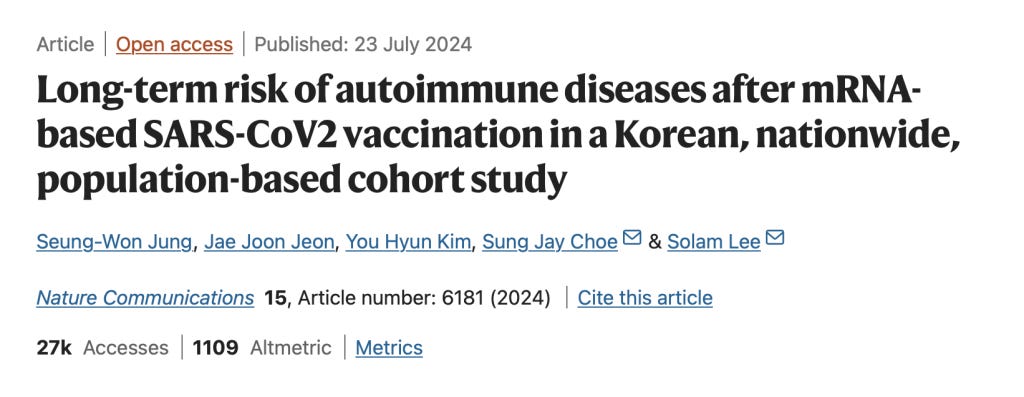
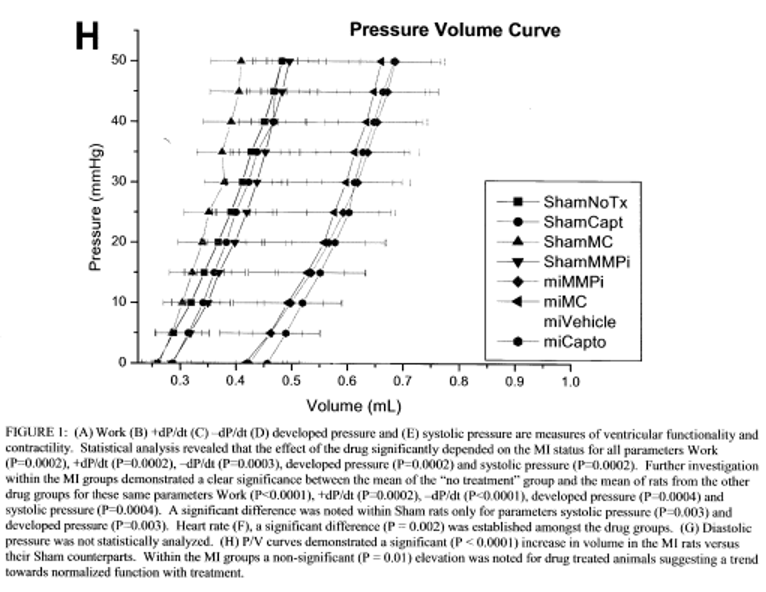










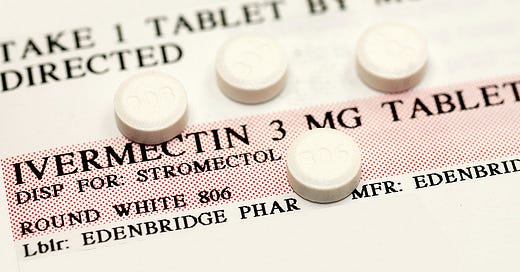

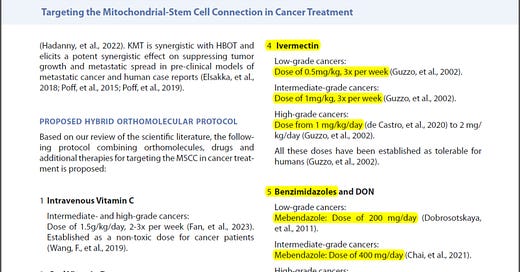

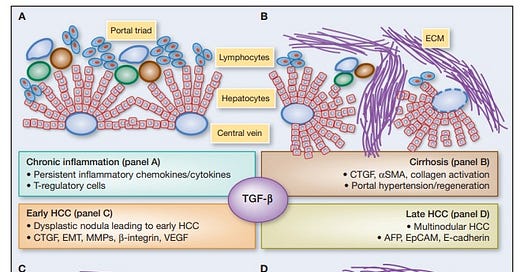

I wish people would start visiting their doctor, nurse or whoever injected them and start demanding restitution.
I have read so many papers during the scamdemic whose results say one thing but their title and abstract say another. I don't recall ever running into this diabolic phenomena until covid 19. The first time I noticed it was the much cited paper saying "vaccines are safe for pregnant women". But if you read the actual data within it is chilling and no pregnant person should come anywhere near one of these injections. As a 67-year-old woman who got myo- pericarditis Within 24 hours of her first Moderna Feb 2021. I'm glad to see they are mentioning females. There have actually been several papers showing that females are more susceptible but the narrative remains that it is primarily young males. I Personally suspect it is every age and sex but that's an inconvenient truth. It's more noticeable in young active people Who until now rarely had heart issues. By the time you hit your 60s The medical community blows you off because you might already have other problems. I actually had no other health problems and only go to the Doctor once a year for the mandatory and ridiculous medicare visit. So 4 weeks of chest pain, Left arm and shoulder pain and breathlessness and extreme fatigue ( fatigue and breathlessness lasted 3 months), was alarming. My GP and my cardiologist both insisted "it could not possibly be related to the safe and effective vaccine that I had just had". VAERS Initially deleted my report. When I realized it several months later, I pointed it out to an actual person at Vaers and they acted embarrassed and reinstated it immediately. In those naive early days I honestly thought Vaers would call me for more details because of this alarming result. But no one ever called of course. It was easier to simply delete the report. How many other reports did they delete because they didn't fit the narrative?
That was the beginning of the end of my faith in the medical community. Well actually I've been a skeptic for a number of years, but I generally thought the 3 letter agencies and doctors had our best interest in mind. Now I sadly know better. At this point I realized we were each on our own to figure this thing out. Are any of these doctors reading these papers or listening to their patients?Or does the band simply keep playing on the tune of "safe and effective"?